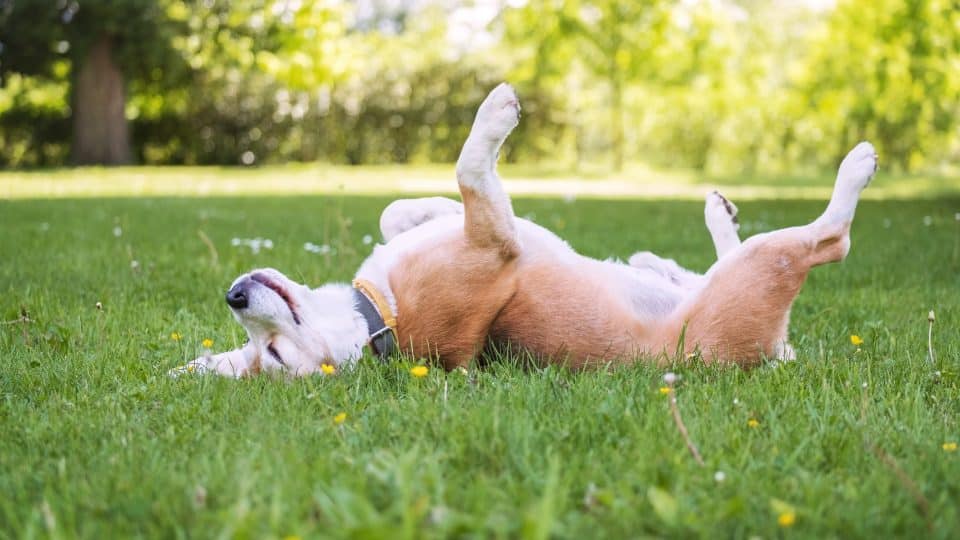My Dog Keeps Rolling On His Back In The Grass – is the article you’re looking for. Hopefully, you’ll find information related to My Dog Keeps Rolling On His Back In The Grass, all of which we’ve summarized from various reliable sources.
Every dog owner has witnessed their furry companion indulging in the peculiar behavior of rolling on their backs in the grass. While some may find it amusing, it’s important to understand the underlying reasons behind this canine behavior.

My Dog Keeps Rolling On His Back In The Grass
In this comprehensive guide, we’ll delve into the fascinating world of dog rolling, exploring its various meanings, potential health implications, and the latest trends in canine behavior research. Join us as we unravel the mystery behind our beloved dogs’ playful antics.
Why Do Dogs Roll on Their Backs?
Dogs roll on their backs for a myriad of reasons, ranging from instinctual drives to seeking attention. Here are some of the common motivations:
- Scent Marking: Rolling in grass allows dogs to transfer their scent onto the ground, marking their territory and communicating with other canines.
- Itch Relief: If your dog is experiencing skin irritation, rolling in the grass can help soothe itching by providing friction and removing loose hair or debris.
- Playfulness: Rolling can be a playful activity for dogs, especially puppies, who may do it out of sheer enjoyment.
- Submission: When approached by a dominant dog or stranger, some dogs may roll on their backs in a submissive posture, indicating that they are not a threat.
- Cooling Down: Rolling in cool grass can help dogs regulate their body temperature on hot days.
Health Implications of Rolling in Grass
While rolling in grass is generally harmless for dogs, it’s important to be aware of potential health implications:
- Fleas and Ticks: Rolling in long grass can expose dogs to fleas and ticks, which can transmit diseases and cause skin problems.
- Allergic Reactions: Some dogs may be allergic to certain grasses or chemicals found in lawns, resulting in skin irritation or respiratory issues.
- Poisonous Plants: Be cautious if your dog rolls in grass that contains poisonous plants, as ingestion can be harmful.
Tips for Responsible Dog Rolling
To ensure your dog’s safety and well-being while rolling in grass, follow these tips:
- Check the Grass: Before allowing your dog to roll, check the grass for any potential hazards, such as sharp objects, poisonous plants, or animal droppings.
- Keep Your Dog Leashed: If your dog is prone to rolling in inappropriate areas, keep them on a leash to prevent them from ingesting harmful substances.
- Inspect Your Dog After Rolling: After rolling, inspect your dog for any ticks, fleas, or skin irritation. If you notice any abnormalities, consult your veterinarian.
- Use a Flea and Tick Preventive: Regularly treat your dog with a flea and tick preventive to reduce the risk of infestations.
FAQ: Common Questions About Dogs Rolling in Grass
Q: Is it okay for dogs to roll in the grass?
A: Generally, yes, rolling in grass is a natural behavior for dogs. However, it’s important to be aware of potential health implications and take precautions to ensure your dog’s safety.
Q: Why do dogs roll on their backs in front of me?
A: Rolling on their backs in front of you can be a sign of submission or playfulness. They may be trying to show you that they are not a threat or simply inviting you to join in the fun.
Q: Should I worry if my dog suddenly starts rolling excessively?
A: While occasional rolling is normal, excessive rolling, especially if accompanied by other symptoms, could indicate an underlying health issue. Consult your veterinarian to rule out any medical problems.
Conclusion
Understanding why your dog rolls on its back in the grass is crucial for fostering a healthy and enjoyable relationship. From marking their territory to seeking attention, this playful behavior can offer valuable insights into their canine psyche. By following our tips and seeking expert advice, you can ensure that your furry companion’s rolling antics remain both endearing and safe.
Are you interested in learning more about canine behavior and other fascinating aspects of dog ownership? Stay tuned for our upcoming blog posts where we’ll continue to explore the wonderful world of our beloved companions.
My Dog Keeps Rolling On His Back In The Grass

Image: www.akc.org
We express our gratitude for your visit to our site and for taking the time to read My Dog Keeps Rolling On His Back In The Grass. We hope you benefit from My Dog Keeps Rolling On His Back In The Grass.